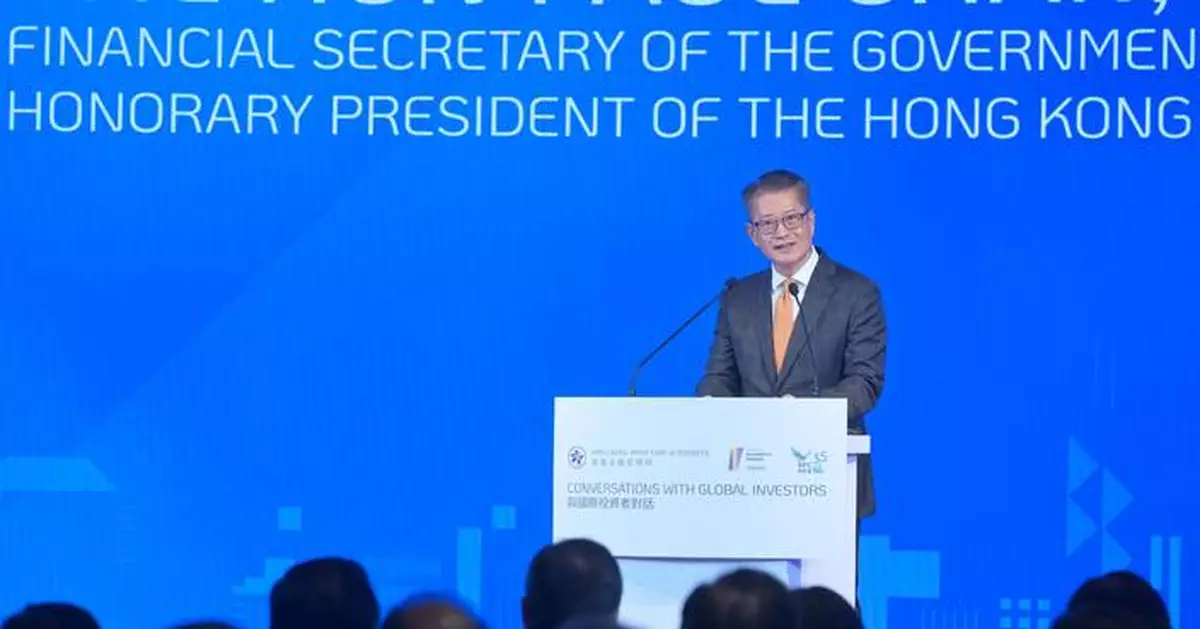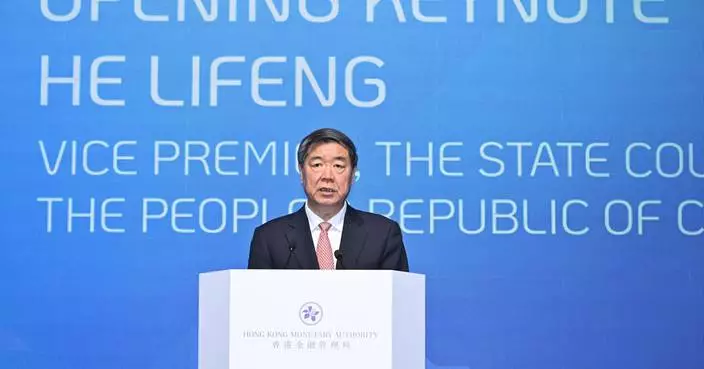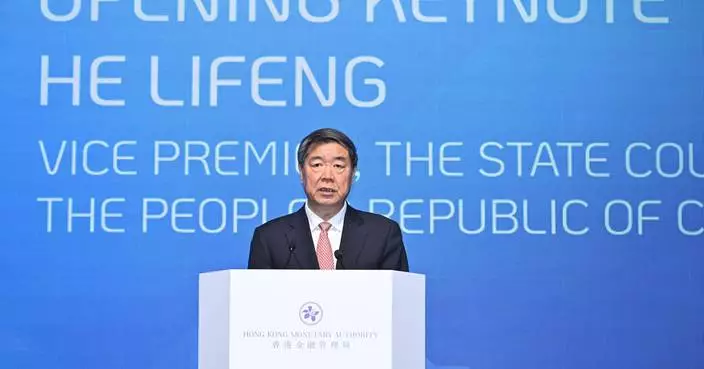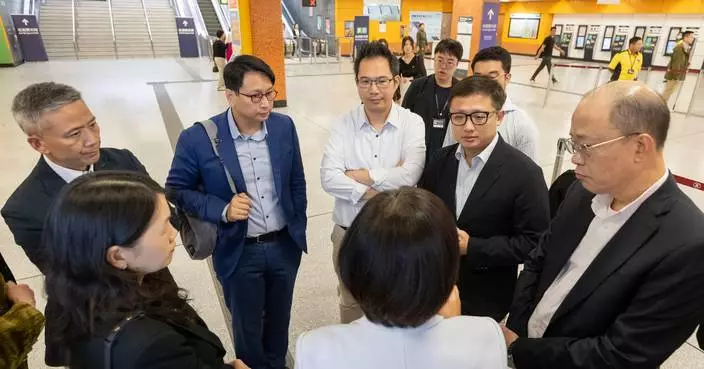Speech by FS at "Conversations with Global Investors" Investment Forum of Global Financial Leaders' Investment Summit (with photos/video)
Following is the speech by the Financial Secretary, Mr Paul Chan, at the "Conversations with Global Investors" Investment Forum of the Global Financial Leaders' Investment Summit today (November 20):
Kelvin (Chairman of the Securities and Futures Commission (SFC), Dr Kelvin Wong), Julia (Chief Executive Officer of the SFC, Ms Julia Leung), Eddie (Chief Executive of the Hong Kong Monetary Authority, Mr Eddie Yue), distinguished guests, ladies and gentlemen,
Good morning. I'm delighted to join the second day of the Summit and take part in this conversation with global investors.
In a world beset by uncertainty, we are all eager to identify and harness major emerging trends that will drive growth and prosperity. This morning, we look into a range of such pertinent trends, from the prospects of alternative assets and private equity, to the future of investments in blockchain and generative AI (artificial intelligence).
As we navigate the complexities of a fragmented world, Hong Kong has also been striving to move along with these trends to foster the growth of new and promising horizons. And we continue to thrive on connecting with the rest of the world, proactively reaching out to both traditional and new markets. This has given us valuable insights into the strategies we should embrace. Allow me to take the next few minutes to share some thoughts with you.
My first observation is that in the face of shifting global dynamics, we must stay agile, responsive and innovative.
With changing geopolitical landscape, and a new administration in the US (United States) on the horizon, the market has been bracing for potential headwinds. But there is no reason to succumb to pessimism. As a matter of fact, countries and businesses are adapting and transforming.
China, for example, has been undergoing remarkable economic transformation, marked by a shift towards high-quality economic growth, supported by domestic consumption, technological innovation, green investment, advanced manufacturing, and many more. Chinese enterprises are also expanding their global industry and supply chain footprint in response to shifting geopolitics.
For Hong Kong, our strategy is to continue to engage with traditional markets like the US and Europe, focusing on co-operation in areas of common interests and mutual benefits.
Earlier this year, I had the opportunity to visit the US and Europe again, where I met with financial, business and industry leaders, as well as entrepreneurs of different backgrounds.
The key takeaway from the visits was straightforward: Notwithstanding the long shadow cast by geopolitics, there is still potential and ample room for co-operation across many areas, from urban planning to infrastructure, to ESG (environmental, social and governance) standards and combating climate change.
Taking green transition as an example. This is a process that requires comprehensive transformation of our society and business activities, demanding long-term collaboration across industries, regions and at various levels. Sectors such as aviation, shipping, transportation and construction, along with businesses involved in trade and manufacturing, all need robust support in terms of policy, funding, technology and talent. Given the complexity of the transformation process, we must seek innovative solutions tailored to address different challenges.
By fostering cross-regional exchanges and engaging in cross-industry discussions at the local level, we can uncover new opportunities for collaboration and identify promising areas of common interests for development.
My second observation is that, with shifting global economic gravity, the rising Belt and Road countries, and the Global South at large, present boundless business opportunities.
The Global South now contributes to about 60 per cent of global GDP (Gross Domestic Product) in terms of purchasing power parity, and accounts for over 40 per cent of global imports and exports. If we just look at ASEAN (Association of Southeast Asian Nations), it is collectively on track to become the fourth largest economy in the world by 2030.
What characterise these markets are rapid economic growth, young population and an expanding middle class. And above all, they all share a strong aspiration for progress by pursuing investments in infrastructure, green transformation and technologies. Amid challenging global landscape, they are also seeking to diversify their investments and asset allocation.
We are making significant strides to capitalise on the opportunities presented by the growth of these emerging markets. My recent visit to Saudi Arabia exemplifies this well.
Joined by a delegation of over 100 members from the financial and innovation sectors, we returned with rewarding outcomes, including the successful listing of two ETFs (exchange-traded funds) in the Saudi Tadawul investing in the Hong Kong market, signing of investment and business co-operation agreements, pitches by Hong Kong start-ups, etc.
A significant insight from our endeavours in entering the Middle East market is the importance of a shared vision. For example, Saudi Arabia, undergoing economic and societal transformation, has underlined in its "Vision 2030" the need for diversification, modernisation and greater openness of their economy. They are also actively embracing digitalisation and green transformation.
When looking for opportunities in overseas markets, their focus extends beyond simply investing capital for financial returns. They are committed to fostering reciprocal investments, sharing experience and best practices, aligning professional standards and forging partnerships that will support their national development objectives.
This visionary mindset fully resonates with ours. The strategic investment made by our investment arm, the Hong Kong Investment Corporation, as I mentioned in my speech yesterday, is clearly one example. What's more, it is our belief that the "Hong Kong brand", comprising, among others, our world-class professional services, solutions by our tech sector, and internationally aligned standards and practices, can very much contribute to their growth and development.
And we are doing just that. The fund that Saudi Arabia's PIF (Public Investment Fund) and the Hong Kong Monetary Authority will jointly set up is a testament to this shared vision. We will be investing together to help companies with a Hong Kong and Greater Bay Area nexus expand into Saudi Arabia in target sectors, including manufacturing, renewables, fintech and healthcare, driving their economic growth, while reinforcing Hong Kong's position as one of the world's leading international financial centres, as well as a rising innovation and technology centre. This is a win-win scenario.
Ladies and gentlemen, despite the challenges posed by a fragmented world, I have no doubt that Hong Kong will continue to thrive. Adapting to uncertainties and changes is, and will be, the new normal. To navigate in a landscape of change, adapting our strategies and harmonising our vision with the evolving aspirations of our economic partners is essential. But with all the unique advantages of our city - not least our internationalisation and our commitment to innovation and progress, Hong Kong is set to remain an attractive partner for investors and businesses from around the world.
Thank you very much.
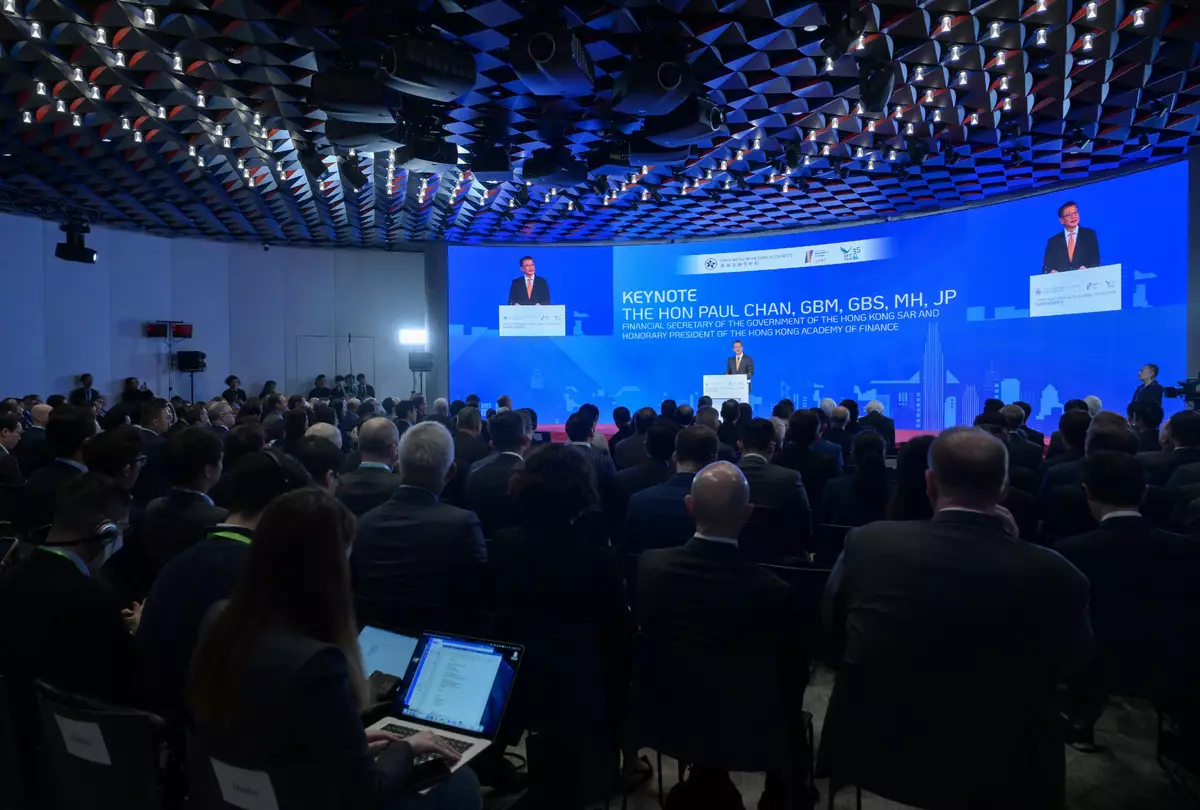
Speech by FS at "Conversations with Global Investors" Investment Forum of Global Financial Leaders' Investment Summit Source: HKSAR Government Press Releases
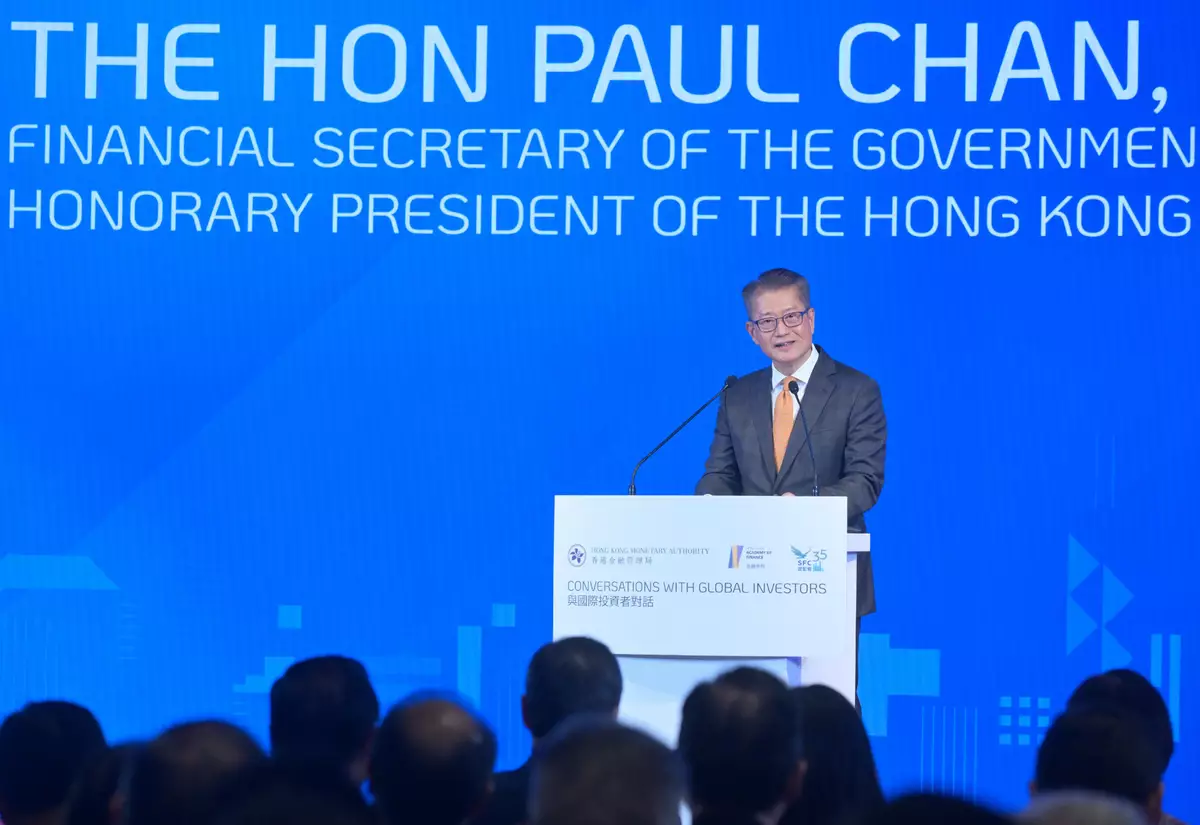
Speech by FS at "Conversations with Global Investors" Investment Forum of Global Financial Leaders' Investment Summit Source: HKSAR Government Press Releases


